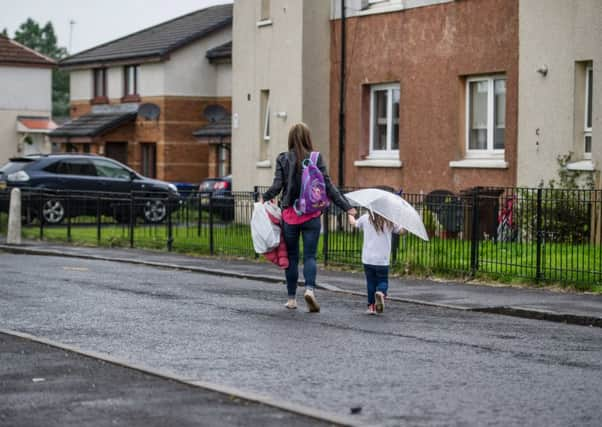Leader comment: Scotland's Third World ghettos


Afterall, their life expectancy of 69.8 is not much higher than their male counterparts in Nepal, one of the poorest countries in the world where the gross domestic product per head of population is approximately one-seventeenth of the UK figure. And those poor Scots men would be advised to try to live life to its fullest while they still can because there’s a good chance they will spend more than a quarter of a century in poor health.
In contrast, the richest 10 per cent will enjoy an average of 69.8 years in good health and live until they are nearly 83.
Advertisement
Hide AdAdvertisement
Hide AdThe gap in health equality among women is smaller, but still significant, with the poorest women having a life expectancy of 76, compared to 85 for the richest.
The British Medical Association Scotland rightly pointed out the gap between rich and poor was “stark and should shame us as a society”.
Shame can be a powerful motivator for change. And if we, the people of Scotland, are genuinely contrite and concerned for our fellow citizens we should be able to make a considerable difference. However, it is questionable whether we really are particularly bothered, given how long this has been a problem in Scotland. Politicians do a lot of talking about the need to tackle poverty, obesity, alcohol abuse, our bad diet and other contributory factors, but they will only actually do something effective if it becomes a major political issue. And, in a democracy, that is ultimately down to the voters.
Few problems can be solved simply by throwing money at them – and the Scottish Government is hardly awash with cash, even when taking the recent income tax hike into account.
But surely part of the answer must lie in the way we educate our children. Schools represent an opportunity to instill a life-long habit of taking exercise on a daily basis and also to teach the youngest generation how to cook a healthy meal.
There are other changes that could help without hitting the public purse too hard. The imminent introduction of minimum unit prices for alcohol is a start; restrictions on the advertising of alcohol, particularly in ways that might appeal to children, could also be introduced.
But, whatever solutions are suggested, one thing we must surely all agree: such inequality cannot stand.
